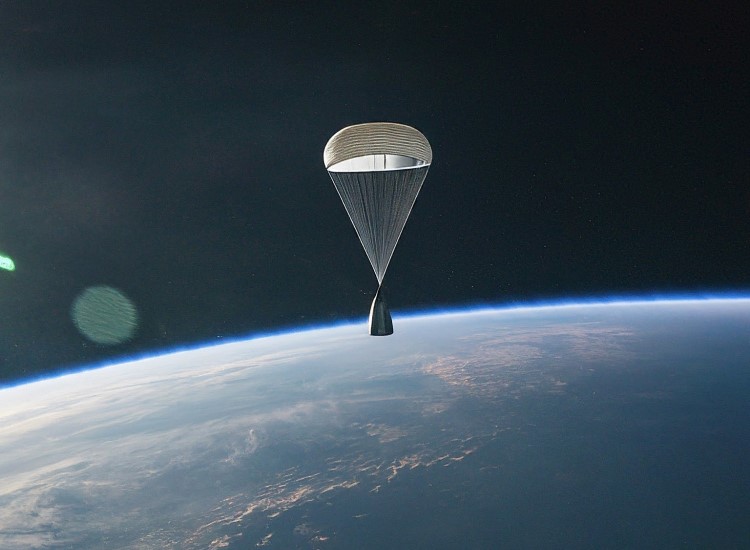Close Call for Blue Origin: New Shepard Parachute Malfunction Triggers Investigation

Close Call for Blue Origin: New Shepard Parachute Malfunction Triggers Investigation
Hold onto your spacesuits, folks! A recent Blue Origin mission, NS-25, which took six passengers on a suborbital joyride on May 19th, experienced a hair-raising situation during landing. While the capsule touched down safely and the passengers emerged unscathed, a post-flight analysis revealed a malfunction with one of the capsule’s three parachutes.
Thankfully, New Shepard’s design incorporates redundancy measures, allowing for a safe landing with just two deployed parachutes. However, this incident has understandably sparked an investigation by Blue Origin.
What Went Wrong?
Reports suggest that a line meant to deploy the parachute during descent failed to sever as intended. This prevented the parachute from fully inflating, adding unnecessary risk to the landing. While Blue Origin hasn’t released many details, they’ve assured the public that they’re working closely with their parachute supplier, NASA, and other launch providers to dissect the issue and prevent similar occurrences in the future.
Why This Matters
Space tourism is a burgeoning industry, and passenger safety is paramount. This parachute malfunction, though not catastrophic, serves as a critical reminder of the importance of robust safety systems and thorough post-flight evaluations.
The good news? Blue Origin appears to be taking this situation seriously. Their ongoing investigation, along with collaboration with key stakeholders, should lead to improved safety protocols for future New Shepard flights.
Eyes on the Future of Space Tourism
The NS-25 incident underscores the need for constant vigilance in the space industry. As private companies like Blue Origin ferry paying customers on suborbital adventures, ensuring passenger safety remains a top priority. By learning from close calls like this one, the space tourism industry can continue to grow and develop, fostering a future where space exploration is accessible to more and more people.





